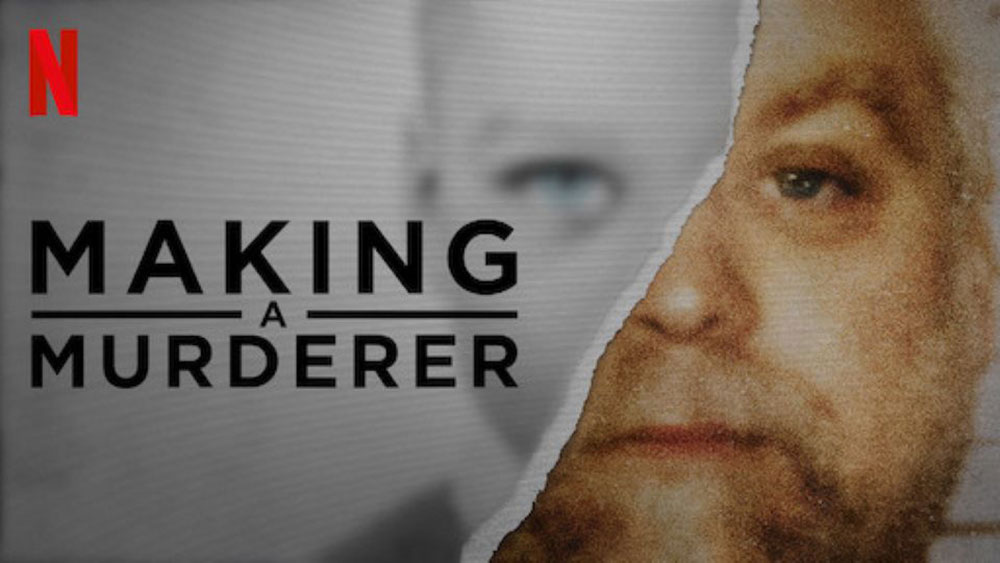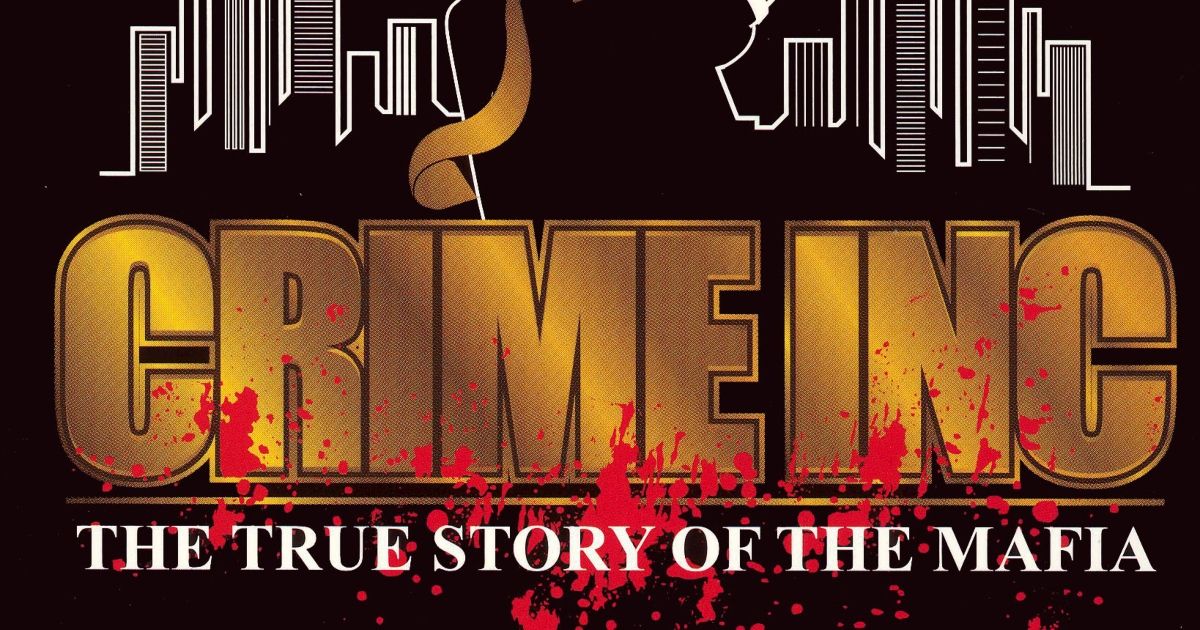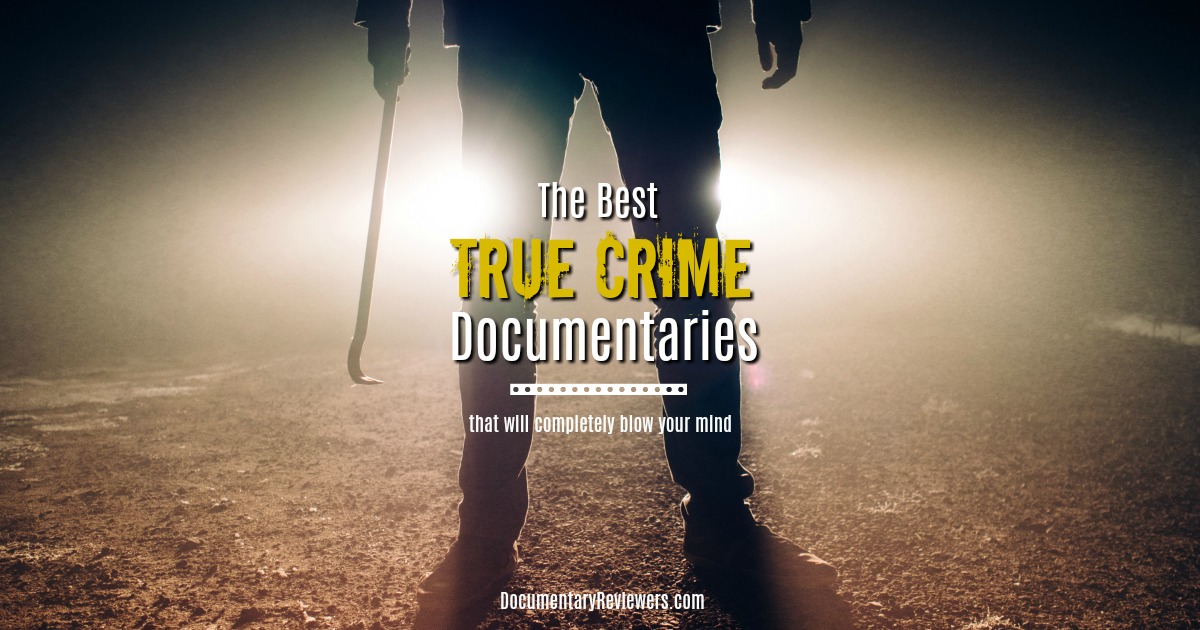Crime documentaries have become a global phenomenon, captivating audiences with their raw and unfiltered portrayal of real-life events. Whether you're a fan of true crime or just curious about the darker side of human nature, these films offer a gripping window into the world of criminal justice, psychological profiling, and the complexities of morality. But why are we so obsessed with crime documentaries? Let's dive in and explore what makes them so irresistible.
Picture this: you're sitting on your couch, popcorn in hand, scrolling through Netflix or Amazon Prime. You come across a crime documentary with a haunting title and an intriguing synopsis. Before you know it, you're hooked, watching episode after episode, unable to tear yourself away from the screen. This isn't just about entertainment; it's about understanding the human psyche and the intricate web of motivations that drive people to commit heinous acts.
The popularity of crime documentaries has skyrocketed in recent years, thanks to the rise of streaming platforms and the increasing demand for content that challenges viewers intellectually and emotionally. These films aren't just about crime; they're about justice, redemption, and the search for truth. So, buckle up, because we're about to take you on a journey through the world of documentary crime.
Read also:Taking Back Sundays Mark Oconnor The Story Of A Rock Legend
What Makes Crime Documentaries So Compelling?
Crime documentaries are more than just a collection of facts and figures. They're stories of real people, told with raw emotion and unflinching honesty. The reason they resonate so deeply with audiences is that they tap into our innate curiosity about the darker aspects of human behavior. Whether it's the thrill of the chase, the mystery of unsolved cases, or the psychological profiling of criminals, these films offer a level of immersion that traditional news reports simply can't match.
One of the key elements that make crime documentaries so compelling is their ability to humanize both the victims and the perpetrators. By delving into the personal stories behind the headlines, these films create a sense of empathy and understanding that goes beyond mere shock value. They challenge us to question our own beliefs and biases, and to consider the broader societal issues that contribute to crime.
Why Are We Obsessed with True Crime?
Humans have always been fascinated by crime. From ancient myths and legends to modern-day news stories, tales of wrongdoing have captivated our imaginations for centuries. But why are we so drawn to true crime, specifically? Experts suggest that it's a combination of factors, including our natural curiosity, our desire for justice, and our need to make sense of the world around us.
Crime documentaries provide a safe space for us to explore these complex emotions without putting ourselves in harm's way. They allow us to experience the thrill of the hunt, the satisfaction of solving a mystery, and the catharsis of seeing justice served, all from the comfort of our own homes. And let's not forget the entertainment factor – these films are often crafted with the same level of skill and artistry as any Hollywood blockbuster.
Documentary Crime: A Growing Trend
The popularity of crime documentaries has grown exponentially over the past decade, thanks in large part to the success of series like "Making a Murderer" and "The Jinx." These groundbreaking films not only captivated audiences but also sparked important conversations about the criminal justice system, police misconduct, and the role of media in shaping public opinion.
Streaming platforms have played a major role in this trend, offering a vast library of crime documentaries that cater to every interest and taste. From high-profile cases to lesser-known stories, there's something for everyone in the world of true crime. And with the rise of user-generated content, even amateur filmmakers have the opportunity to share their stories with a global audience.
Read also:Celebrity Gossip Magazines Your Ultimate Source For Spilling The Tea
Breaking Down the Numbers: The Impact of Crime Documentaries
According to a recent study, over 60% of streaming service users have watched at least one crime documentary in the past year. This trend is particularly strong among younger audiences, with millennials and Gen Z making up a significant portion of the viewership. But it's not just about entertainment – many viewers report that crime documentaries have increased their awareness of social issues and inspired them to take action in their own communities.
So, what does this mean for the future of documentary crime? As technology continues to evolve and new platforms emerge, we can expect to see even more innovative and immersive storytelling techniques. Virtual reality, augmented reality, and interactive content are just a few of the possibilities that could revolutionize the way we experience true crime.
The Art of Storytelling in Crime Documentaries
Behind every great crime documentary is a team of skilled storytellers who know how to weave together facts, emotions, and visuals to create a compelling narrative. The art of storytelling in crime documentaries goes beyond simply presenting the facts; it's about creating an emotional connection with the audience and leaving a lasting impact.
One of the key elements of successful crime documentaries is the use of interviews. Hearing directly from those involved in the case – whether it's the victims, the perpetrators, or the investigators – adds a layer of authenticity and intimacy that can't be replicated through other means. Additionally, the use of archival footage, reenactments, and voiceovers helps to create a vivid and immersive experience for viewers.
Techniques for Engaging Audiences
- Focus on the human element: Highlight the personal stories behind the headlines to create empathy and understanding.
- Use a mix of media: Combine interviews, archival footage, and reenactments to create a dynamic and engaging experience.
- Build suspense: Structure the narrative in a way that keeps viewers on the edge of their seats, revealing key details at just the right moments.
- Encourage critical thinking: Present multiple perspectives and encourage viewers to question their own assumptions and biases.
The Role of Crime Documentaries in Shaping Public Opinion
Crime documentaries have the power to shape public opinion in ways that traditional news reports often can't. By presenting a more nuanced and comprehensive view of a case, these films can challenge long-held beliefs and spark important conversations about justice, morality, and accountability.
One of the most famous examples of this is the documentary "The Thin Blue Line," which not only shed light on a wrongful conviction but also played a key role in securing the release of the innocent man. Similarly, "Making a Murderer" sparked a national debate about the treatment of suspects in the criminal justice system and the potential for systemic bias.
Real-World Impact: Changing Lives Through Documentary Crime
The impact of crime documentaries extends far beyond the screen. In many cases, these films have led to real-world changes, including the overturning of wrongful convictions, the reform of police practices, and increased awareness of social issues. By giving a voice to those who might otherwise go unheard, crime documentaries have the power to effect meaningful change in society.
Of course, not all crime documentaries are created equal. It's important for filmmakers to approach their subjects with integrity and sensitivity, avoiding sensationalism and misinformation. By adhering to ethical standards and prioritizing the truth, crime documentaries can continue to serve as a powerful tool for social change.
Challenges and Controversies in Documentary Crime
While crime documentaries have many benefits, they're not without their challenges and controversies. One of the biggest concerns is the potential for sensationalism and exploitation, particularly when it comes to sensitive topics like sexual assault and domestic violence. Filmmakers must walk a fine line between telling a compelling story and respecting the dignity of those involved.
Another challenge is the issue of bias. While documentaries are often seen as objective sources of information, they're still subject to the biases and perspectives of their creators. This is why it's important for viewers to approach these films with a critical eye and to seek out multiple sources of information when forming their opinions.
Addressing Ethical Concerns in Crime Documentaries
- Ensure transparency: Clearly disclose any potential conflicts of interest or biases.
- Respect privacy: Protect the identities and rights of those involved in the case, particularly victims and their families.
- Verify facts: Use credible sources and cross-check information to ensure accuracy.
- Encourage dialogue: Provide a platform for multiple perspectives and encourage viewers to engage in thoughtful discussions.
The Future of Documentary Crime
As technology continues to evolve, the future of crime documentaries looks brighter than ever. With advancements in virtual and augmented reality, filmmakers have the opportunity to create even more immersive and interactive experiences for viewers. Additionally, the rise of social media and user-generated content means that more people than ever before have the tools to tell their own stories.
But perhaps the most exciting development in the world of documentary crime is the growing diversity of voices and perspectives. As more filmmakers from underrepresented communities gain access to resources and platforms, we can expect to see a wider range of stories and viewpoints that challenge the status quo and broaden our understanding of the world.
Trends to Watch in the World of Crime Documentaries
- Increased focus on social justice issues: Filmmakers are increasingly using their platforms to highlight systemic injustices and advocate for change.
- Interactive storytelling: Advances in technology are enabling filmmakers to create more engaging and interactive experiences for viewers.
- Global perspectives: As the world becomes more interconnected, we can expect to see more crime documentaries that explore international cases and cross-cultural issues.
Conclusion: Why Documentary Crime Matters
In conclusion, crime documentaries are more than just entertainment – they're a powerful tool for education, awareness, and social change. By shining a light on the darker aspects of human nature and the complexities of the criminal justice system, these films challenge us to think critically and act responsibly. Whether you're a seasoned true crime enthusiast or just discovering the genre, there's no denying the impact that crime documentaries can have on both individuals and society as a whole.
So, the next time you find yourself binge-watching a crime documentary, take a moment to reflect on the stories being told and the lessons they offer. And don't forget to share your thoughts with others – after all, the power of documentary crime lies not just in the films themselves, but in the conversations they inspire.
Table of Contents
- What Makes Crime Documentaries So Compelling?
- Why Are We Obsessed with True Crime?
- Documentary Crime: A Growing Trend
- Breaking Down the Numbers: The Impact of Crime Documentaries
- The Art of Storytelling in Crime Documentaries
- Techniques for Engaging Audiences
- The Role of Crime Documentaries in Shaping Public Opinion
- Real-World Impact: Changing Lives Through Documentary Crime
- Challenges and Controversies in Documentary Crime
- Addressing Ethical Concerns in Crime Documentaries


